Our History
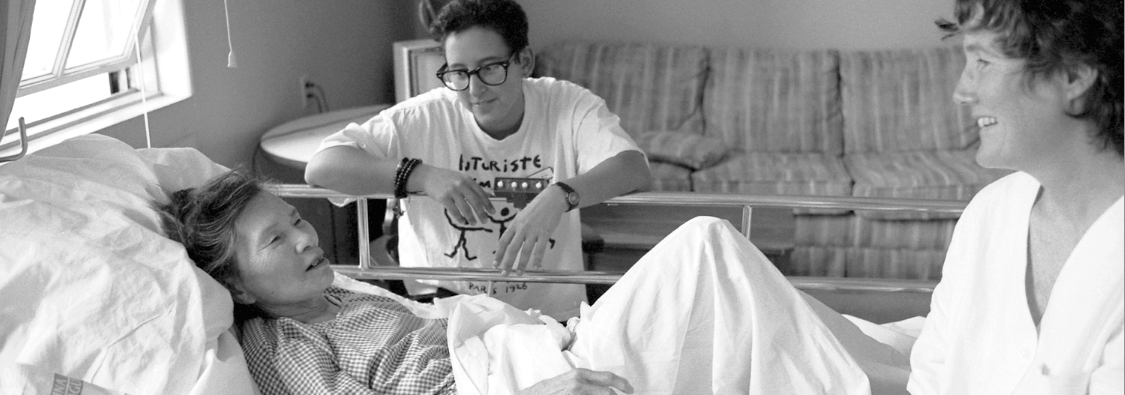
Our Story: An Appropriate Response
The Early Days
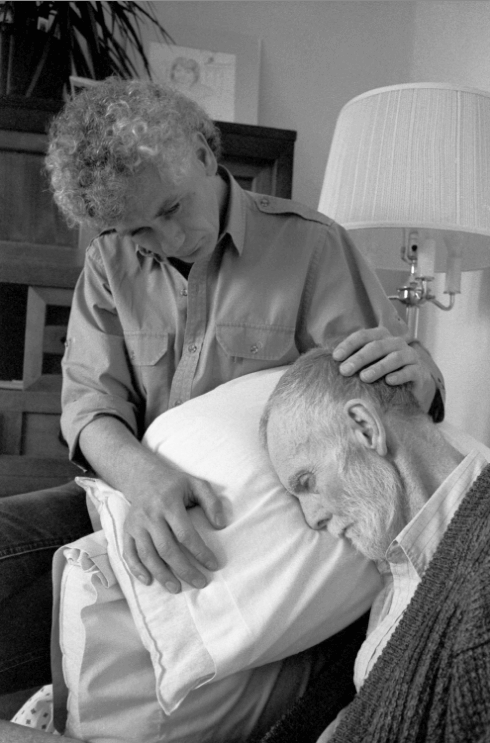
The Zen idea of an appropriate response is the simple act of finding practical ways to work toward the goal of reducing suffering, an idea pivotal to Buddhist teachings. The creation of Zen Hospice Project was an appropriate response initiated in 1986 by Zen practitioner Martha deBarros, and other members of the San Francisco Zen Center. They saw a need to address the suffering they witnessed every day among the homeless population of the city, some of whom were dying on the street. Martha, with the encouragement of Norman Fisher — the director of Green Gulch Farm and Zen Practice Center at the time — set out to explore the possibility of starting a Zen hospice. It was an opportunity to “get off the cushion,” the act of taking your practice out of the meditation hall and into the world. With the help of a social worker named Amy Weiss, they developed a plan to provide hospice care using volunteers from the Zen community. According to Frank Ostaseski, the first Zen Hospice Project director hired in September of 1987, “it was an “opportunity to bring together mindfulness practice and service practice… It was a whole new way to do hospice work.”
The San Francisco Zen Center provided the volunteer program a very small room with a desk, a phone, and two chairs on the second floor of the City Center building on Page Street. Martha deBarros recalls, “That’s all we had; we had no money. So we decided to raise some more money for Frank’s salary…and we decided to keep it a volunteer program.”
The initial volunteer caregiver training was held at Green Gulch in January of 1988 and attracted a group of 18 people, mostly Green Gulch residents and practitioners. For the first year, the volunteers supported a program at San Francisco General Hospital in coordination with social worker and Outpatient Coordinator Eileen Lemus. She referred volunteers to patients living with cancer, no social support, and often mental health and addiction issues. Volunteers provided whatever was needed, whether it was food, supplies, or simple companionship. These patients were people truly on the margins of society, existing from month to month on Social Security checks. It was just enough money to stay in a residential hotel for a week or two after which they would live on the streets until the next check. The Zen Center volunteers would visit them, often tracking individuals from the clinics at San Francisco General to hotels and onto the street.
Becoming Zen Hospice Project
In the fall of 1988, a board of directors was created, and they decided to split off from the SF Zen Center and become a separate non-profit, adopting the name Zen Hospice Project. Later that same year, because of their connection with Eileen Lemus and SFGH, Laguna Honda Hospital — San Francisco’s long term care county hospital — contacted ZHP and asked them to provide volunteers for their C2 ward hospice unit. This began a unique public/private partnership that continues to this day.
The Guest House
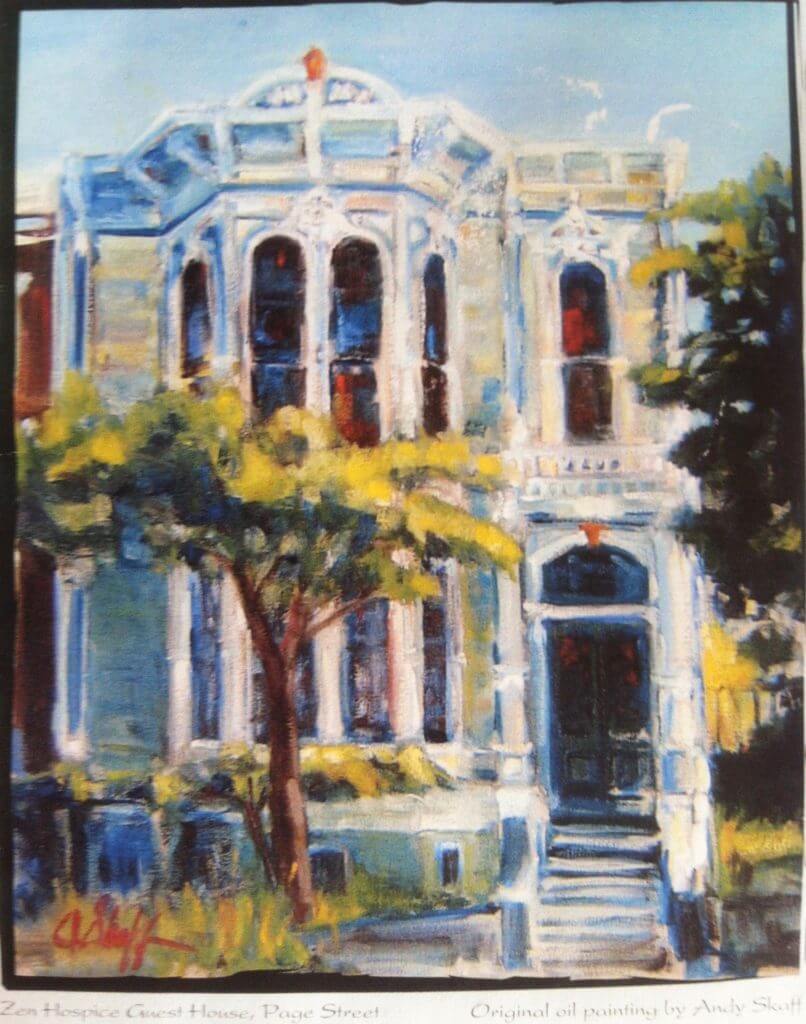
During this same period, Zen Hospice Project started using one room to host dying patients at 273 Page Street, a large Victorian house owned by the San Francisco Zen Center. This location was commonly referred to as the Edward Conze House, and later, the Guest House. Other rooms were occupied by Zen students until 1990 when Zen Hospice Project took over the entire house as a residence for the dying. With four beds on the second floor, the Guest House continued to serve the dying until June of 2004 when it closed due to necessary renovations.
In 2004, an anonymous donor purchased 273 Page Street from the Zen Center and gifted the property to Zen Hospice Project. After renovations, the Guest House reopened in 2010 with California State licensure as a Residential Care Facility for the Chronically Ill (RCFCI) with 24-hour nursing staff and a referrals-and-reimbursement agreement with the University of California San Francisco (UCSF) Medical Center.
Zen Hospice Project continued to use the Guest House as a residential hospice house to serve the dying until June of 2018. Earlier that year, the UCSF agreement ended, and faced with rising operating costs and a lack of a sustainable funding stream in a changing healthcare environment or new referrals partner, the Guest House closed. Zen Hospice Project had sought a new referrals-and-reimbursement partner, and though we made progress with a major payor/provider, the arrangement could not be finalized in time to save the Guest House. In October 2018, the Guest House was sold to pay off loans the organization incurred to keep operations going without a viable partner. The sale of the Guest House provided an endowment for the organization to carry on its good work into the future.
The loss of the Guest House was painful for all the dedicated staff and volunteers who poured their hearts into creating and sustaining such a unique and loving environment. The house provided a place for the deepest expression of our humanness. And yet, it was just a building, a container for the work of serving those at the end of life. It was the caregiving expressed through the service and actions of the people who worked there, that made the Guest House unique. Such work is no less powerful in the institutional setting of Laguna Honda Hospital.
Laguna Honda Hospital
Throughout the many changes and challenges that we have faced over the years, Zen Hospice Project has been able to rely on the volunteer program at Laguna Honda Hospital as an expression of its model of care.
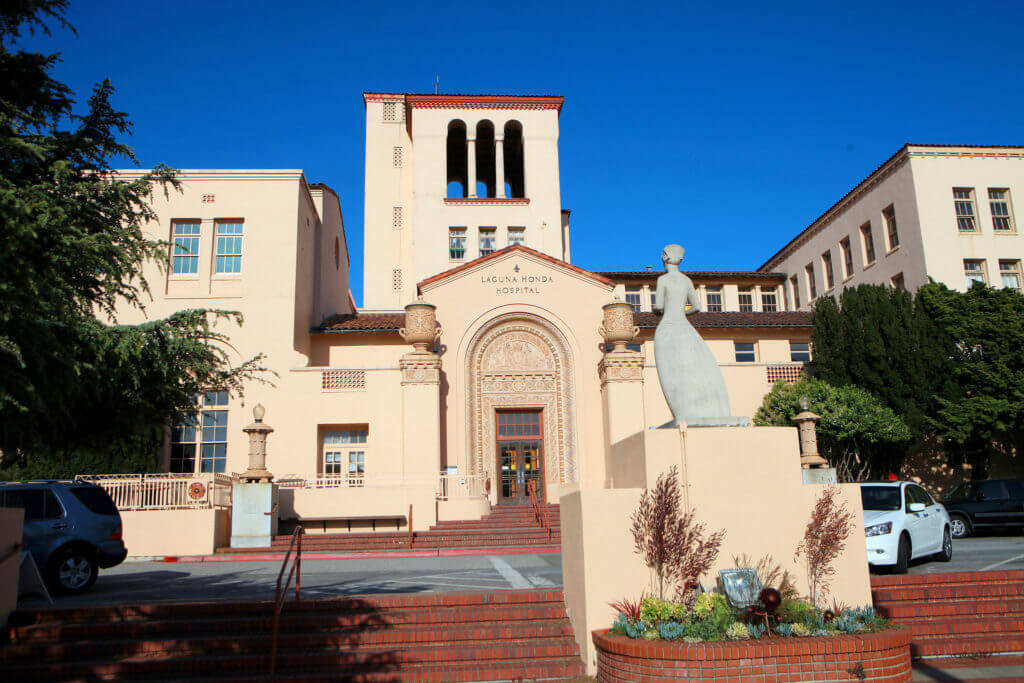
Through the volunteer program, we have maintained a continuous presence serving the dying for more than 30 years. Laguna Honda Hospital is San Francisco’s “other” county hospital, providing long term care and rehabilitation services to low-income residents of the city. Initially, Zen Hospice Project volunteers served in Ward C2, a 26-bed hospice, providing mindful care to dying patients from 9:00 AM to 10:00 PM every day of the week. In 2010, the new Laguna Honda Hospital building opened, and these services transferred to the 60-bed Palliative Care Ward on South-Three.
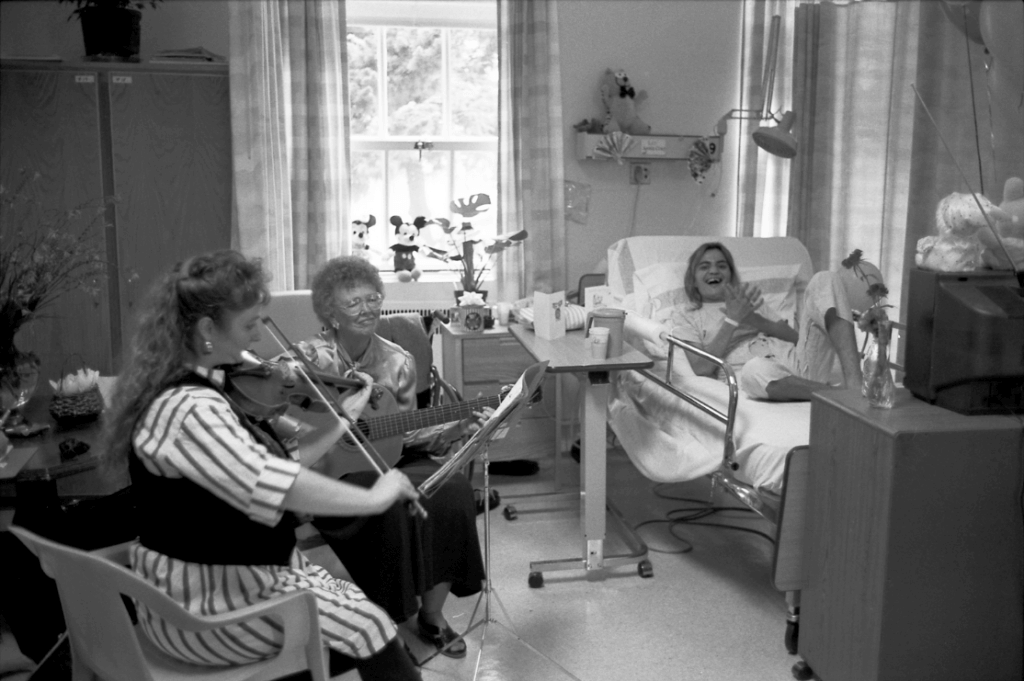
Zen Caregiving Project currently has 70 volunteers serving on S3, seven days a week. Volunteers there are fully integrated into the care of the ward, providing an unhurried presence that is often outside the reach of busy staff members. Despite a more clinical setting than the Guest House, the work performed by our volunteers remains the same, offering a kind, listening presence and an open heart in the face of suffering. What is truly important is that the call to serve with mindfulness and compassion, and the willingness to open ourselves to suffering, remains unchanged.
Mindful Caregiver Education
Since its inception, Zen Hospice Project has offered various educational programs for the public. In 2004, ZHP created the Education Institute under the leadership of Frank Ostaseski and was later spun off to create the Metta Institute. In 2015, Mindful Caregiver Education was created to formalize a curriculum rooted in mindfulness and compassion, for formal and informal caregivers.
In 2017, a generous grant was provided by the Stupski Foundation to research the needs of family caregivers and to refine the existing curriculum for the particular needs of this group. The two-year grant enabled Zen Hospice Project to create the Mindful Family Caregiving course curriculum and to establish partnerships with local health systems for delivery of this educational intervention. In the summer of 2019, Zen Hospice Project piloted its online Mindful Family Caregiving course to expand its reach to caregivers outside the bay area.

International Attention
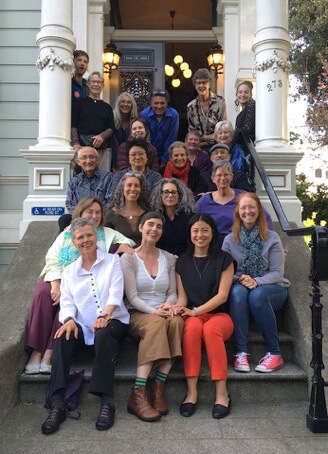
Zen Hospice Project has been a leader in the hospice movement in the US since its beginning. Over the years, our work has received attention around the world. In 2000, then Director Frank Ostaseski was featured on the Bill Moyers’ On Our Own Terms special on death and dying. In 2001, Frank was a guest on the Oprah Winfrey show. In 2005, our work received a commendation from the Dalai Lama.
In September of 2015, our then Executive Director, BJ Miller, MD delivered a ground-breaking Ted Talk titled What Really Matters at End of Life. Several major publications and news outlets have featured our work, such as California Sunday Magazine, San Francisco Magazine, New York Times, Vice, and the Ted Radio Hour.
Our staff has presented at conferences and symposiums around the world. We have shared our approach to care with visitors from around the country and the world who have come to learn how they could establish their own residential hospice houses.
Evolving to Zen Caregiving Project
Following the closure of our Guest House end-of-life care facility, we are focussing greater emphasis upon caregivers who support those living with chronic and terminal illnesses. Much of our work is to encourage caregivers to learn emotional skills early in their caregiving journey to support well-being and provide higher quality care. In light of our expanded focus, we believe that “hospice” in our name no longer conveys the scope of services we offer.
Our mindful and compassionate approach to palliative care will always remain a core part of what we offer; however, we feel a responsibility for finding new ways of reaching more caregivers. We were careful to develop an informed process to find a public-facing name that reflected all of what we do while staying true to our history. While our name will legally remain Zen Hospice Project, our public-facing “brand” is now Zen Caregiving Project. What has not changed is our commitment to sharing what we have learned over the years for the benefit of people everywhere.

